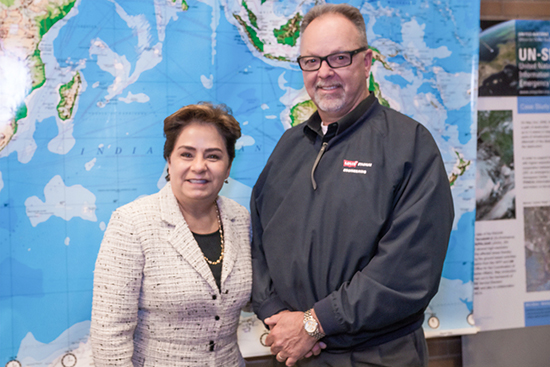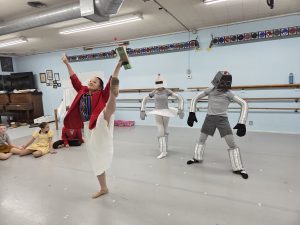Competition on the playing field isn’t everything at Levi’s Stadium in Santa Clara, home to the San Francisco 49ers football team since July 2014. Now, at the invitation of the United Nations, the stadium—one of the greenest in the world—is reaching out globally to share best practices in environmental sustainability with other sports organizations.
Levi’s Stadium was invited to participate in a UN Dialogue on Sport and Climate Action in Bonn, Germany on Oct. 30 and 31, 2017. The 49ers and the Philadelphia Eagles were the only two sports stadium operations teams among the 25 participating sports organizations.
The two-day dialogue preceded the 23rd session of the UN Conference of the Parties, held Nov. 6 to 17, 2017, to advance the goals of the 2015 Paris Climate Change Agreement. The dialogue featured workshops, discussions and presentations on how sports could reduce greenhouse emissions and inspire fans to be more environmentally engaged and active.
“The movement of sports being part of the climate change conference is new,” said Pat Rogan, Levi’s Stadium Director of Engineering Operations, who represented the 49ers at this first UN dialogue among sports organizations. “The 49ers are well positioned to be at the forefront as this movement moves forward. We’re not just doing business, but sustainable business.”
To qualify to sign the UN’s Climate Neutral Now Pledge, the 49ers continue to reduce greenhouse gas emissions. A new system to turn food waste into recycled water, already in place at stadiums in Dallas and Philadelphia, started on Nov. 24, 2017 for a six-month trial period. In the first two weeks, about seven thousand pounds of compost was diverted from landfill, saving $500-$600 in dump fees.
Levi’s Stadium’s 7,000-square-foot rooftop, edible vegetable and herb garden, originally 4,000 square feet, will be increased, for a second time, to 12,000 square feet by removing some of the existing native plants and grasses.
Levi’s Stadium holds two Leadership in Energy and Environmental Design (LEED) Gold certifications in the United States. In its bid to serve as a host venue for the 2026 FIFA World Cup (an international association football competition), the 49ers are pursuing ISO 2121, the global version of LEED. To achieve this international standard, an organization must be environmentally and socially responsible while maintaining financial success.
“The UN platform can serve to inspire all of sports,” said Rogan. “They are committed to incorporating the sporting world into their annual meetings on global climate change and that puts the responsibility on all of us to keep improving so we can earn that seat at the table.”












0 comments